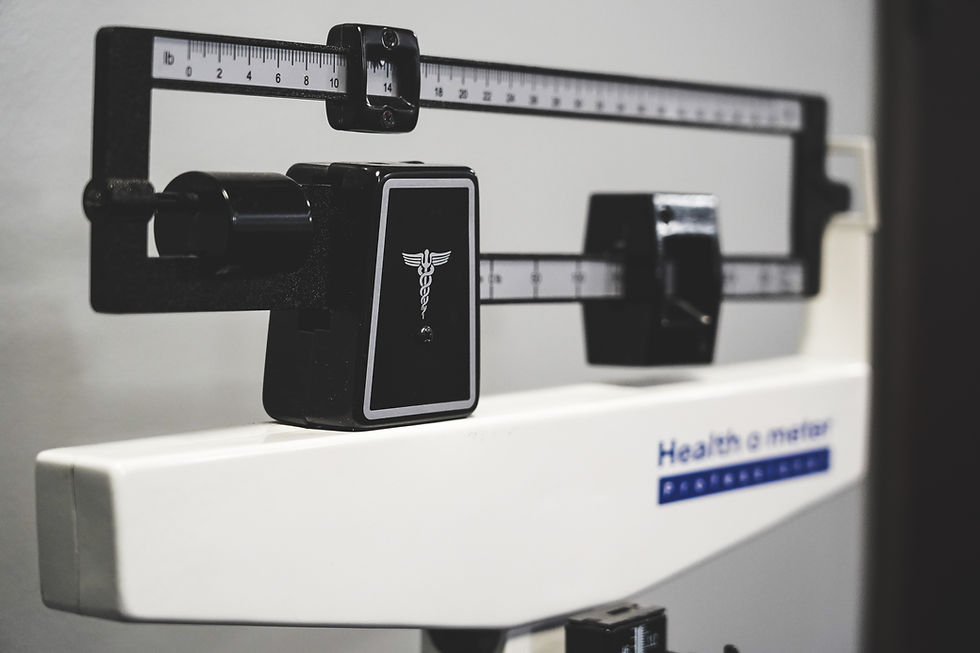The Truths and Misconceptions about Nexus Letters
- MRPY Professional Services

- Aug 19, 2021
- 5 min read

There is a lot of information on the Internet about nexus letters that can make the process of deciding if a nexus letter is the right decision to support your VA disability claim an overwhelming task. Some information is very helpful and some is based on the negative opinions of nonexperts. I want to outline 5 common truths and misconceptions about these documents. Starting with the truths...
Nexus letters (medical opinion documents) and/or DBQ's are not required for the filing of your VA disability claim. The process is simple: file a claim with the VA for any condition you feel is related to service or another service-connected condition and upload medical and nonmedical evidence to support your claim. Many Veterans are successful at submitting claims by themselves or with registered VSO's. However, there are many who are not as lucky or do not have a straightforward case.
Nexus letters (medical opinion documents) and/or DBQ's can be completed by your treating providers/specialists or third party companies such as MRPY Professional Services. There are many reasons people choose one option over another but as long as the VA lingo and rationale is included in the document both are very good choices. Third party companies such as ourselves are experts with VA disability claims whereas your physician may not understand how service-connection works, secondary conditions, VA regulation and case law, how to properly word the opinion and rationale, the benefit of adding medical literature resources, or simply does not have the time to provide a comprehensive document that reflects the severity of your condition. Paying for expert services can give you the confidence that all relevant information is included about your condition, that it is properly supported as service-connected, and is in a concise format for the VA rater and/or examiner to see the connection we see.
Nexus letters (medical opinion documents) and/or DBQ's can benefit your VA disability claim by providing a positive professional medical opinion. Often secondary claims are circumstantial where there is research evidence of the connection through aggravation but it is not common practice or knowledge in the medical community. Remember your treating providers are primarily concerned about how to prevent disease processes, how to treat disease processes, and how to avoid a permanent negative outcome for you. They don't spend much time in the day contemplating how your conditions are impacting each other. The C&P examiner's are practicing providers and often are not familiar with all of the VA regulations and how one condition can be connected to another especially through an intermediate step such as weight gain. The rater will not catch this frequently and only see that the C&P examiner provided a negative opinion. This is where a private nexus letter helps. It gives you a positive opinion to counter the negative C&P examiner's opinion and forces the rater to consider both viewpoints. Additionally, if you are filing a VA board of appeals case the Judge/panel of Judges will weigh the positive opinion in the decision process.
Nexus letters (medical opinion documents) and/or DBQ's can benefit your VA disability claim by responding to a previous denial with new information or clarification of a connection. When you get denied we see a few recurrent themes: no causal connection, did not complain in service, no medical link between the two conditions....to name a few. How is a Veteran supposed to combat this on their own especially if their treating providers don't want to get involved or want to put in the necessary time to respond to these denials? A private nexus letter can provide the evidence you need for a supplemental claim and avoid a year long wait for a VA board of appeals case.
Medical opinion documents and/or DBQ's can benefit your increase rating request by highlighting how the condition has worsened and/or how the current status meets a higher rating level in the 38CFR (code of federal regulations for VA disability rating percentages). Yes you can submit treatment records to support an increase request, but many of the rating codes are not only based on medical records. Some have fuzzy VA language such as "productive of considerable impairment of health", or "economic inadaptability". Having an opinion document from a professional organization such as ourselves will give you the best chance at getting the most out of your increase request.
Now for some misconceptions...
Nexus letters are written by companies out to separate Veterans from their money. I cannot speak for other companies, but as a disabled Veteran and medical professional this is NOT my intention. If I think you can file the claim on your own with reasonable success then that is what I tell you to do. You can always come back to me if it is denied and we have some rationale to argue against. I also do not "pencil whip" documents. If I cannot find the connection or support it with evidence based literature then I will not write the document.
The VA will only consider nexus letters from in person examinations. The VA regulation is stated that all evidence submitted will be considered for the claim. Frequently the VA will conduct an "ACE" review themselves which is a records review only for the claim.
The VA will only consider nexus opinions from their contracted C&P examiners. All evidence submitted is considered. A nexus opinion can be provided by any medically qualified provider.
Private nexus companies do not have qualified medical personnel writing nexus documents. Yes, you need to be aware of what the provider's credentials are and the type of document you are requesting. This does not mean an MD. A Physician Assistant, Nurse Practitioner, or Chiropractor can write medical nexus letters. Even an audiologist can provide a nexus letter if it is for hearing or tinnitus claims. For example, a mental health provider should not be writing you a document for your medical complaints unless they have specialized training to do so. Chiropractors should not be writing your cardiac nexus letters as they are not trained or licensed in this field. This is why I list my credentials in the about us section. I can write any medical nexus document as a trained and licensed Physician Assistant. If you request a mental health nexus I always refer out to a proper specialist.
private nexus companies have hidden fees. I cannot say about other companies because I don't work for them, but I can say that we have no hidden fees. We don't charge after you win your case...That's your money. We charge an appropriate amount for a licensed and trained medical provider with experience and expertise with VA disability claims to review your specific situation and if they find a positive association provide a quality document to support that claim. The fees are for the documents we provide and are paid up front. Additional documents for a supplemental or VA board of appeals case for any nexus letter written by our team is provided free of charge if we are able to argue against the denial rationale.
I hope you found this post to be educational and arm you with the tools you need to feel confident in the provider you choose to support your VA disability claim.




Comments